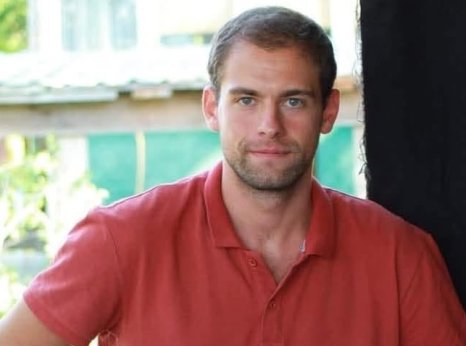Georgia: Actor Andro Chichinadze Jailed After Unfair Trial

Actor Andro Chichinadze is a well-known public figure in Georgia, an outspoken government critic and participant in pro-European protests in November-December 2024. One of his co-defenders, comedian Onise Tskhadadze, is also a public figure. In addition to the human rights violations, including fair trial violations suffered by all defendants, Andro Chichinadze and Onise Tskhadadze appear to have been singled out for public attacks by government officials, seemingly because of their visibility as protest figures, to create a chilling effect.
The prosecution initially charged Andro Chichinadze and 18 other protesters with “group violence,” a grave offence punishable by up to nine years’ imprisonment, but at the last stage reclassified the charges to “public order disturbance,” which carries a fine or imprisonment of up to three years.
On 2 and 3 September, in two separate proceedings, a court in Tbilisi sentenced all 19 individuals to prison terms for alleged public order disturbance ranging from 2 to 2.5 years in prison. In case of Andro Chichinadze, the proceedings failed to prove his actions (throwing of objects) have endangered anyone or caused any harm or damage, similarly to the relevant actions of other defendants in the case. In all cases, the prosecution has failed to prove that the actions of which they stand accused were premeditated, coordinated, or connected to a larger plan – key elements of the legal definition of the group crime. Moreover, during the trial the prosecution’s witnesses, including police officers who claimed to have been the victims of “group violence”, were not able to identify Andro Chichinadze, or other defendants in their testimonies as the individuals who had committed any violent acts against them.
The trials of Andro Chichinadze the others have been marred by numerous fair trial violations. including imposing a state-appointed counsels without his consent, denying defence sufficient time to prepare, and arbitrarily removing some of his co-defendants from the courtroom during the hearing. They are symbolic of Georgian government instrumentalizing criminal justice to punish protesters and silence dissent and reflect the systematic denial of justice to the hundreds of protestors who have been targeted and punished because of their participation in anti- government protests.
Protests have been widespread in Georgia for over a year, against the Transparency of Foreign Influence Bill in April and May 2024, the disputed election results in October same year, and the suspension of the EU accession process in November-December 2024. Police used unlawful force to disperse overwhelmingly peaceful protesters, including arbitrary arrests, beatings and other ill-treatment, resulting in injuries and the arbitrary detention of hundreds of protesters. Police also pursued protesters outside of demonstrations, conducting searches and arrests in their homes and offices. During the November-December protests alone, some 500 protesters were reportedly detained. Amnesty International has documented widespread use of torture and other ill-treatment of detained protesters, misuse of criminal justice to target political opposition and other dissent, and the use of gendered reprisals, including violence, against women protesters in Georgia and has recently launched a global campaign to demand accountability and justice for protesters in Georgia.